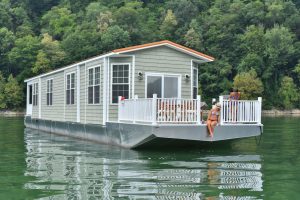Hotel review ratings are pivotal for both travelers and the hospitality industry. This analysis delves into the distribution of these ratings, exploring factors that influence them, and examining how they impact hotel bookings. We’ll uncover the insights gleaned from review text analysis, compare different review platforms, and consider the financial implications of rating changes. Ultimately, understanding hotel review ratings provides valuable knowledge for both guests making informed choices and hotels striving for success.
The study will cover various aspects, from the typical distribution of star ratings across different hotel types to the impact of specific factors like cleanliness and service quality. We will analyze how sentiment analysis can be applied to understand guest opinions and identify recurring themes. Further, a comparison of review platforms will reveal potential biases and the correlation between ratings and occupancy rates will be explored.
Related Travel Topics
Choosing between a hotel and a vacation rental is a significant decision for any traveler, impacting budget, comfort, and overall travel experience. Both offer distinct advantages and disadvantages, catering to different travel styles and priorities. Understanding these differences can help travelers make informed choices that align with their needs.
Vacation Rentals vs. Hotels: Advantages and Disadvantages
Vacation rentals, often found through platforms like Airbnb, offer a unique alternative to traditional hotels. A key advantage is often greater space and privacy. Many rentals provide full kitchens, allowing for cost savings on dining out and greater control over meal preparation. This is particularly beneficial for families or groups traveling together. Furthermore, vacation rentals frequently offer a more localized experience, allowing guests to immerse themselves in the neighborhood’s culture and amenities.
However, a significant disadvantage can be the lack of consistent service and amenities found in hotels. Housekeeping, for example, may be less frequent or require separate arrangements. Additionally, unforeseen maintenance issues can arise, potentially disrupting a traveler’s plans. Hotels, conversely, typically provide consistent service, readily available staff, and a wider range of amenities such as pools, fitness centers, and room service.
However, hotel rooms are generally smaller and less private, and the cost per night can be significantly higher, particularly for larger groups.
Finding Safe and Reliable Vacation Rentals
Securing a safe and reliable vacation rental involves thorough research and due diligence. Reading reviews from previous guests is crucial, paying close attention to comments regarding cleanliness, accuracy of the listing description, and communication with the host. Verifying the host’s identity and credentials through the platform’s verification system is also essential. Look for rentals with clear cancellation policies and detailed descriptions of the property’s features and amenities.
Choosing rentals with a high number of positive reviews and a history of successful bookings can significantly reduce the risk of encountering problems. Additionally, utilizing secure payment methods provided by the platform helps protect against fraudulent transactions. Checking for safety features such as smoke detectors and carbon monoxide detectors, mentioned in the listing, can further enhance safety.
Booking and Managing a Vacation Rental
Booking a vacation rental usually involves creating an account on a platform like Airbnb or VRBO. Searching for properties based on location, dates, and guest capacity allows for a tailored search. Once a suitable rental is found, reviewing the listing details, including the house rules and cancellation policy, is crucial before proceeding with the booking. Direct communication with the host to clarify any questions or concerns before booking is recommended.
After booking, confirming the reservation details and the check-in/check-out procedures with the host is essential. During the stay, maintaining clear communication with the host regarding any issues or requests is important for a smooth experience. Following the house rules and leaving the property in the same condition as it was found upon arrival helps ensure a positive experience for both the guest and the host.
Upon check-out, confirming the departure process with the host can help avoid any potential disputes or misunderstandings.
Related Travel Topics
Choosing the right hotel can significantly impact your travel experience. A well-chosen hotel can provide a comfortable and enjoyable stay, while a poor choice can lead to disappointment and inconvenience. Therefore, understanding the importance of hotel reviews and how to write effective ones is crucial for both travelers and those who contribute to the collective knowledge base of online reviews.
The Importance of Reading Hotel Reviews Before Booking
Reading hotel reviews before booking a stay allows potential guests to gain valuable insights into the actual experience offered by a hotel, supplementing the often-polished marketing materials. Reviews provide a diverse range of perspectives from previous guests, covering aspects that might not be immediately apparent from professional photographs or descriptions. This includes details on room cleanliness, staff helpfulness, noise levels, proximity to attractions, and overall value for money.
By carefully considering these reviews, travelers can make more informed decisions, aligning their expectations with the reality of their potential stay. For example, a review mentioning persistent noise from a nearby construction site might deter someone seeking a peaceful vacation, allowing them to choose a quieter alternative. Similarly, reviews highlighting exceptional service can influence the choice of a hotel over a seemingly cheaper but poorly-reviewed option.
Strategies for Writing Helpful and Informative Hotel Reviews
Writing helpful hotel reviews involves providing specific and detailed information that can benefit future guests. Avoid vague statements and instead focus on concrete details. For example, instead of saying “the room was small,” a more helpful review would state, “The room was smaller than expected, measuring approximately 10×12 feet, making it feel cramped for two adults and a large suitcase.” Include information about the room’s amenities, the hotel’s location relative to attractions and transportation, and the quality of service received.
Mention specific positive and negative experiences, supporting your observations with factual details. It’s also helpful to mention the time of year you visited, as this can impact the experience (e.g., noise levels during peak season). Finally, always maintain a respectful and professional tone, even when expressing negative feedback.
Examples of Positive and Constructive Criticism in Hotel Reviews
Positive reviews should highlight specific aspects of the stay that exceeded expectations. For example: “The staff at the front desk were incredibly helpful and friendly, going above and beyond to assist us with directions and restaurant recommendations. Our room was impeccably clean, and the complimentary breakfast buffet offered a wide variety of delicious options.” Constructive criticism, on the other hand, focuses on specific areas for improvement, while still maintaining a respectful tone.
For example: “While the hotel’s location was convenient, the noise from the street was noticeable throughout the night. Soundproofing improvements in the guest rooms would greatly enhance the overall experience. The Wi-Fi connection was also inconsistent at times, making it difficult to work remotely.” Both positive and constructive reviews, when detailed and specific, are valuable resources for future travelers.
Related Travel Topics
RV and camper travel offers a unique blend of freedom and adventure, allowing travelers to explore at their own pace and immerse themselves in diverse landscapes. However, this mode of travel also presents specific challenges that require careful planning and preparation. This section will Artikel the advantages and disadvantages, essential planning tips, and a packing checklist for a successful RV or camper trip.
Benefits and Challenges of RV and Camper Travel
The allure of RV and camper travel lies in its flexibility. Travelers can deviate from pre-planned routes, linger longer in appealing locations, and enjoy the convenience of having their accommodation with them at all times. The cost savings can be significant, particularly for families, as accommodation expenses are integrated into the overall travel budget. Furthermore, the experience fosters a sense of independence and self-sufficiency, enhancing the overall travel experience.
However, challenges exist. Maintaining an RV or camper requires mechanical knowledge and regular maintenance. Finding suitable campsites and managing waste disposal can be logistically demanding, especially in popular tourist areas. Furthermore, fuel costs and potential mechanical breakdowns can unexpectedly increase the overall trip expenses.
Essential Tips for Planning an RV or Camper Trip
Thorough planning is crucial for a smooth RV or camper trip. Begin by defining your travel route and desired destinations, considering the driving distances and available campsites along the way. Booking campsites in advance, especially during peak season, is essential to secure preferred locations. Familiarize yourself with the dimensions and weight of your RV or camper to ensure it is suitable for the chosen routes and campsites.
Regularly check the weather forecast and be prepared for unexpected changes in weather conditions. It’s also wise to have a backup plan in place for unforeseen circumstances, such as mechanical issues or campsite unavailability. Consider purchasing roadside assistance for peace of mind.
Packing Checklist for an RV or Camper Trip
A well-organized packing list is essential for a comfortable and enjoyable trip. Begin with the essentials: clothing suitable for various weather conditions, toiletries, medications, and important documents such as driver’s licenses, registration, and insurance information. For the RV or camper itself, ensure you have adequate supplies of fresh water, propane, and waste disposal bags. Pack cooking utensils, plates, cups, and other necessary items for meal preparation.
Don’t forget entertainment such as books, games, or movies, particularly if traveling with children. A comprehensive first-aid kit and basic tools for minor repairs are also highly recommended. Finally, consider bringing items for outdoor activities, such as hiking boots, camping chairs, and binoculars, depending on your planned activities.
Related Travel Topics
Stepping outside the traditional hotel experience offers a chance to connect with a destination on a deeper level. Unique accommodations, like treehouses and yurts, provide an immersive and memorable travel experience, far removed from the standard hotel room. This section explores the allure of these alternative lodging options, offering examples and considerations for planning your next unique getaway.
The Appeal of Unique Accommodations, Hotel review ratings
The appeal of unique stays such as treehouses and yurts lies in their ability to offer a truly memorable and immersive travel experience. They often provide a connection with nature, a sense of adventure, and a departure from the routine. Treehouses, nestled high amongst the branches, offer a sense of seclusion and tranquility, while yurts, with their nomadic heritage, provide a glimpse into different cultures and lifestyles.
The novelty factor alone can significantly enhance the overall travel experience, creating lasting memories. Furthermore, these accommodations often prioritize sustainability and eco-consciousness, aligning with the growing trend of responsible tourism.
Examples of Unique Accommodations Worldwide
Unique accommodation options are available globally, catering to a diverse range of preferences. For example, the Treehotel in Harads, Sweden, offers a collection of uniquely designed treehouses, each with its own distinct architectural style and stunning views of the surrounding forest. In contrast, the yurt camps found across Mongolia offer a glimpse into traditional nomadic life, with comfortable yurts providing a base for exploring the vast landscapes.
Another example could be found in Costa Rica, where eco-lodges blend seamlessly into the rainforest, providing guests with a chance to observe wildlife from the comfort of their unique accommodation. These are just a few examples of the diverse and exciting possibilities available to travellers seeking something beyond the ordinary.
Factors to Consider When Choosing a Unique Stay
Choosing a unique stay requires careful consideration of several factors. Location is paramount; consider the proximity to attractions, transportation options, and the overall ambiance of the surrounding area. Amenities are another crucial aspect; while some unique stays prioritize a back-to-nature experience with limited amenities, others offer a higher level of comfort and convenience. Price is also a significant factor, with unique accommodations ranging from budget-friendly options to luxury retreats.
Finally, guest reviews and ratings can provide valuable insights into the quality of the accommodation and the overall guest experience. Careful consideration of these factors will ensure a positive and memorable experience.
Related Travel Topics
Choosing between a houseboat or yacht vacation offers a unique set of considerations. Both provide an escape from traditional hotels, immersing you in the beauty of waterways, but the experiences differ significantly in terms of cost, amenities, and the overall atmosphere. This section will explore the nuances of each option to help you make an informed decision.
Houseboat and Yacht Stay Experiences
A houseboat vacation offers a more relaxed, self-sufficient experience. Imagine waking up to the gentle rocking of the water, enjoying a leisurely breakfast on your private deck, and spending your days exploring hidden coves and tranquil waterways at your own pace. Houseboats typically provide a comfortable living space with a kitchen, bedrooms, and bathroom, allowing for a home-away-from-home feel.
The focus is on tranquility and connection with nature. In contrast, a yacht stay presents a more luxurious and often faster-paced experience. Think sleek lines, polished wood, and perhaps even a crew to cater to your every need. Yacht vacations often involve exploring a wider range of destinations, perhaps island hopping or visiting exclusive marinas. The emphasis is on exploration and a touch of opulent comfort.
Houseboat versus Yacht: Cost, Amenities, and Location
The cost of a houseboat vacation is generally lower than a yacht charter, particularly for larger groups. Houseboats often offer more space for the price, making them an attractive option for families or friends traveling together. Amenities on houseboats typically include basic kitchen facilities, sleeping areas, and sometimes a small deck. Yacht charters, on the other hand, can range from relatively affordable to incredibly expensive, depending on the size and luxury of the vessel.
Amenities on yachts can include gourmet kitchens, multiple staterooms, entertainment systems, and even water toys. Location is another key differentiator. Houseboats are often found on inland waterways, lakes, or rivers, offering a more secluded and peaceful experience. Yachts, however, can access a much wider range of locations, including coastal waters, oceans, and even international destinations.
Planning a Houseboat or Yacht Vacation
Careful planning is crucial for a successful houseboat or yacht vacation. For houseboats, research the specific waterway and check for any navigational restrictions or permits required. Ensure you have sufficient boating experience or consider hiring a captain if needed. For yacht charters, book well in advance, especially during peak season. Clearly understand the charter agreement, including insurance coverage and any additional fees.
Consider the size and type of vessel that best suits your group size and desired level of luxury. For both houseboats and yachts, pack appropriately for the climate and activities planned. Remember sunscreen, insect repellent, and any necessary boating gear. Finally, consider travel insurance to protect against unforeseen circumstances.
In conclusion, hotel review ratings are a powerful indicator of guest satisfaction and a significant driver of hotel bookings and revenue. By understanding the factors influencing these ratings, hotels can implement strategies to improve their performance and attract more guests. For travelers, understanding how to interpret and utilize review information empowers them to make well-informed decisions, leading to more satisfying travel experiences.
The insights presented here offer a comprehensive overview of this crucial aspect of the hospitality industry.
Commonly Asked Questions: Hotel Review Ratings
How are hotel review ratings calculated?
Most platforms use an average score based on individual guest ratings, often on a scale of 1 to 5 stars. The exact calculation may vary slightly between platforms.
Are fake reviews a significant problem?
Yes, fake reviews are a concern. Platforms employ various methods to detect and remove them, but some still slip through. Looking for reviews with detailed descriptions and multiple photos can help identify genuine feedback.
How can I write a helpful hotel review?
Focus on specific aspects of your stay, both positive and negative. Be descriptive, factual, and avoid overly emotional language. Mention details like room cleanliness, staff helpfulness, and location convenience.
What should I do if I have a negative experience and leave a bad review?
It’s crucial to be honest but also constructive. Clearly state your concerns, but avoid personal attacks. Contact the hotel directly to address your issues before posting a negative review; they may be able to resolve the problem.





